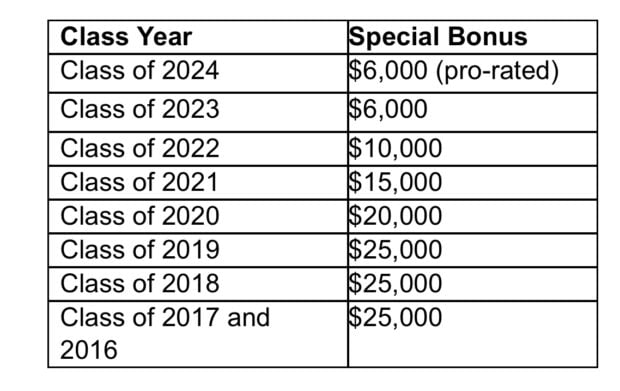(Photo
by
Sergio
Flores/Getty
Images)
Yesterday,
Alex
Jones’s
longtime
bankruptcy
lawyer
Vickie
Driver
noped
out
of
his
Chapter
7
case.
Jones’s
effort
to
fend
off
the
sale
of
his
company
to
The
Onion,
will
now
be
helmed
by
Shelby
Jordan,
a
bankruptcy
lawyer
from
Corpus
Christi
who
has
been
practicing
law
since
the
Nixon
administration.
And
it’s
going
AMAZING!
After
entering
his
appearance,
Jordan
immediately
filed
suit
against
the
Sandy
Hook
parents,
whom
Jones
defamed
and
called
“crisis
actors”
after
their
children
were
murdered
in
their
classroom.
The
complaint
also
named
Global
Tetrahedron,
the
parent
company
of
The
Onion,
and
the
Chapter
7
Trustee,
Christopher
Murray,
alleging
that
the
parties
colluded
to
steal
Jones’s
IP
and
thwart
the
bid
of
Jones’s
buddies
at
First
United
American
Companies
LLC
(FUAC).
Jordan,
who
is,
again,
not
new
here,
seems
blissfully
unaware
of the Barton doctrine,
which
bars
suits
against
a
bankruptcy
trustee
without
leave
of
the
court.
Jones
demanded
a
TRO,
claiming
that
Murray
and
The
Onion
had
fired
all
the
employees,
looted
the
business,
and
directed
the
company’s
website
to
The
Onion’s
servers.
He
followed
that
up
with
a
promise
to
challenge
the
non-dischargeability
ruling
from
October
of
2023,
in
which
the
court
found
that
most
of
the
debts
would
survive
bankruptcy
because
they
were
incurred
as
the
result
of
defamation,
a
willful
tort.
FUAC
filed
its
own
motion
to
disqualify
the
Onion
bid,
alleging
gross
misconduct
by
Murray,
prompting
a
furious
response
from
Murray
threatening
to
move
for
Rule
11
sanctions.
At
a
hearing
on
November
14,
Judge
Christopher
Lopez
appeared
alarmed
at
the
structure
of
the
auction,
in
which
one
group
of
creditors
disclaimed
enough
of
its
share
to
make
the
others
materially
better
off,
even
under
The
Onion’s
lower
cash
bid.
But
at
yesterday’s
hearing
on
the
TRO,
after
having
digested
the
pleadings,
the
judge
was
back
to
status
quo
ante
—
audibly
exhausted
by
Jones’s
shenanigans
and
his
lawyers’
bad
faith
histrionics.
Jordan
spent
several
minutes
attacking
the
underlying
state
judgments,
droning
on
about
the NYT
v.
Sullivan
standard
and
the
First
Amendment,
apparently
under
the
impression
that
bankruptcy
judges
give
a
shit
about
that.
He
also
made
bizarre
claims
that
the
Sandy
Hook
parents
should
be
disqualified
as
bidders
because
their
motives
were
to
shut
Jones
and
up
and
make
their
own
debt
uncollectible.
“We
will
not
be
inquiring
into
the
motives
of
bidders,”
Judge
Lopez
sighed.
But
Jordan
was
still
going!
He
still
had
to
get
through
his
allegations
about
Murray
and
The
Onion
cahootsing
to
knock
Infowars
offline.
Reading
the
rancid
goat
entrails,
it
would
appear
that
Jones’s
legal
defense
fund
on
GiveSendGo
got
DDOS-ed
or
…
something?
Jordan
did
finally
concede
that
the
Infowars
site
had
been
operational
all
week
with
Jones
at
its
helm
spewing
his
regularly
scheduled
bile.
“Mr.
Jordan,
I’m
not
sure
what
I’m
being
asked
to
restrain,”
Judge
Lopez
broke
in
eventually.
“At
this
point,
I’m
not
sure
anything,”
Jordan
conceded,
while
mumbling
that,
absent
injunctive
relief,
there
was
nothing
to
stop
Murray
and
the
evil
allium
from
taking
Infowars
offline
again.
At
the
end
of
the
hearing,
Judge
Lopez
denied
the
TRO.
He
seemed
wholly
disinclined
to
engage
with
Jones
and
FUAC’s
demands
to
preemptively
halt
the
sale,
and
ordered
an
evidentiary
hearing
in
the
first
week
of
December
to
determine
whether
the
bid
should
be
ratified.
He
also
pointed
out
at
length
that
motions
for
reconsideration
filed
upwards
of
a
year
after
ruling
face
an
exceedingly
high
barrier
that
cannot
by
overcome
by
hinting
darkly
at
the
“motives”
of
the
creditor.
Toward
that
end,
he
greenlit
a
deposition
of
Murray,
but
not
of
The
Onion
or
the
Sandy
Hook
families
to
delve
into
their
sinister
motives.
And,
to
top
it
all
off,
Jones’s
screeching
that
Elon
Musk
was
riding
to
his
rescue
took
yet
another
hit
as
X
Corp.
stated
once
again
for
the
record
that
it
“does
not
object
to
the
proposed
sale
as
a
general
matter”
and
its
only
interest
here
is
whether
Ex-Twitter
handles
can
be
sold.
All
in
all,
it
was
a
total
loss
for
Jones
and
FUAC
—
not
that
you’d
know
it
from
listening
to
his
show.
Alexander
E.
Jones
and
Official
Committee
Of
Unsecured
Creditors [Docket
via
Court
Listener]
Liz
Dye lives
in
Baltimore
where
she
produces
the
Law
and
Chaos substack and podcast.







 Chris
Chris



 Kathryn
Kathryn


 Olga
Olga



